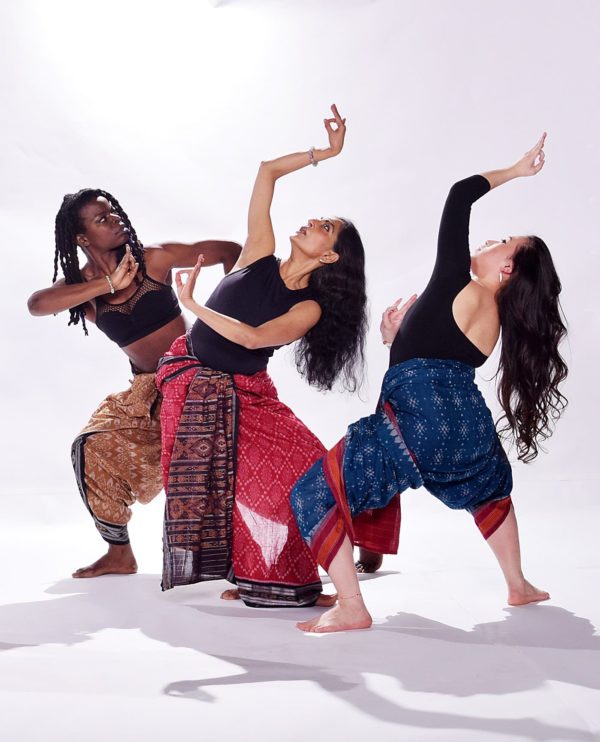Social movements — whether they concern race, economic equity or environmental justice — often have one thing in common: They are led and sustained by women.
That’s a theme at the core of Ananya Dance Theatre’s latest piece, “Shyamali: Sprouting Words,” which looks at the role of women in fostering dissent, and how protest in turn leads to progress.
Dancer Felicia Perry said that throughout the dance, there is an analogy between women who protest and the grass beneath our feet.
“The way in which grass, you can tread on it — it might fall, lie down, but it will rise back. You can cut it [but] it will always grow back.
Grass can be pretty annoying … in the ways that women are annoying when we speak up and we speak out, but we keep coming back.”
“Shyamali” features Ananya Dance Theatre’s signature mix of classical Indian dance, yoga and martial arts. The moves are at times dreamy and sensual, at other times fiercely physical. The dancers are beaten down, and they come back.

Ananya Dance Theatre founder Ananya Chatterjea.
Courtesy of V. Paul Virtucio
Founder Ananya Chatterjea said that protest is too often viewed as negative. It disrupts, creates inconveniences — but to her, dissent is an inherently positive act.
“That kind of standing up against injustice is what actually takes the community as a whole forward,” Chatterjea said. “And that’s what we forget.”
She pointed to the Black Lives Matter movement, to the Indian Women’s Movement and to the Native American Water Protectors of Standing Rock. All such movements, she said, were started by women. They all seek to better the world and society through racial, environmental and economic justice. But the work can be draining and slow.
“My question is, how can we sustain ourselves in this dissent? Because it seems we are in it for the long haul,” she said. “So how are we going to hold ourselves — how to find the softness, how to find the love, and also how to find the ‘Yes!’ inside of the dissent.”
“Shyamali” conveys the emotional labor of women’s work, and of protest, and the cost that comes with speaking out. It examines the different forms dissent can take. But it also projects images of resilience and solidarity.
At one point, the mostly female dancers all slowly pull back their hair and secure it, either in ponytails or braids. Dancer Felicia Perry said that in another context the gesture could be seen as cosmetic, but here it’s different.
“It’s almost like when you’re getting ready for a fight, or you’re getting ready for battle,” she said. “There’s like this quiet warrior moment.”
For a black woman, she said, hair can be very political.
“For me, that moment touches on so many things tied to beauty and hair as well,” she said. “It’s a very deep moment for me to share on stage with other women, women whose hair is different.”
The dances are combined with original music, poetry, a live vocal performance by Mankwe Ndosi and video. Parts of the dance are inspired directly by current political events. At one point in the performance, a large wall is slowly taken over by green grass that makes its way into the cracks. Later, the dancers carry reflective shields, similar to those used at Standing Rock.
Perry just started performing with Ananya Dance Theatre at the beginning of the year. She said the experience has been transformative.
“Women are very powerful, and I’m learning so much — the power in just a small movement, the power in your eyes,” she said.
I want people to see the power in women. I want people to stop saying things like ‘man up,’ as if masculinity is the epitome of power. I want them to see the epitome of power on that stage, and then I want them to see themselves for who they are.”
Because, she said, just like the grass beneath our feet, these women are going to keep coming back.
Ananya Dance Theatre will perform “Shyamali: Sprouting Words” this Friday and Saturday at The O’Shaughnessy in St. Paul.
Source: MPR News
Women of Green is TURNING UP THE VOLUME of the feminine voice on the planet in order to create the world we know is possible.
